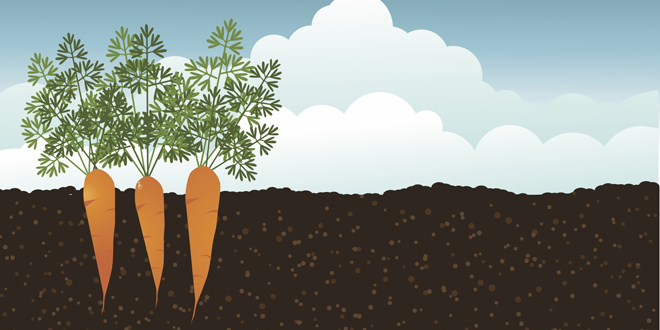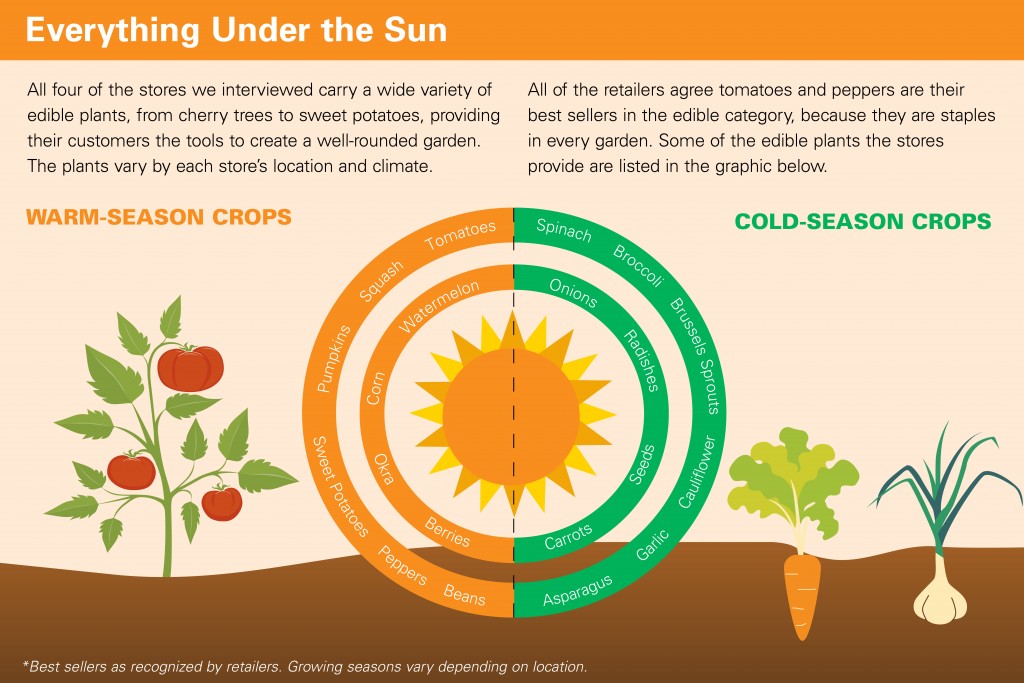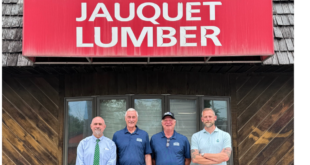To download a PDF of this story, click here. To download the Lawn & Garden Selling Guide, visit hardwareretailing.com/food-gardening. For more data on the growth in food gardening click here.
Getting Back to the Roots
With more consumers growing their own edible gardens consisting of fruits, vegetables and herbs, there is an opportunity for you to cultivate your business. Having a knowledgeable staff and educational information will brand your store as the go-to neighborhood resource.
“Besides the fact that people want to know what goes into their food, there is this desire to tangibly connect with the earth and make something,” says Annie Stom, owner of Annie’s Hardware in Washington, D.C. “A lot of people have desk jobs with daily meetings, and it’s hard to see the results of their labor. But when they grow or build something, they can step back and say, ‘I did that.’”
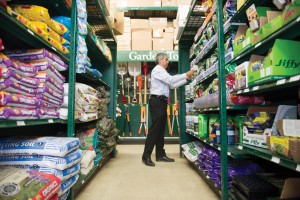
The desire to food garden is growing among consumers, and they are planting their own fruits, vegetables and herb gardens for a variety of reasons. Some want fresh produce; others find gardening enjoyable.
The ability to fill their plates with backyard produce is something consumers can be proud of.
To help your customers cultivate bountiful gardens, it is important to arm them with knowledge, examples and in-depth advice.
On the following pages, we will look at some of the different ways to acquire and provide knowledge about fruit and vegetable plants to your employees and customers, in addition to helping your customers create their own gardening success stories. If their gardens are successful, they’ll have you to thank.
Featured Stores:
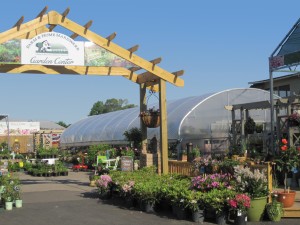 Farm & Home Do it Best Hardware
Farm & Home Do it Best Hardware
Experts:
Scott Jerousek, Owner and Laurie Hammersmith, General Manager
Location:
Wellington, Ohio
Website:
farmandhome.doitbest.com
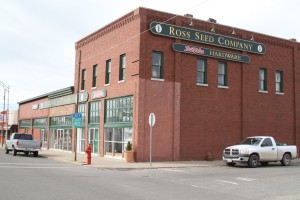 Ross Seed
Ross Seed
Experts:
Tom Ross, Owner and Barbara Chadwick, Master Gardener
Location:
El Reno, Oklahoma
Website:
rossseed.com
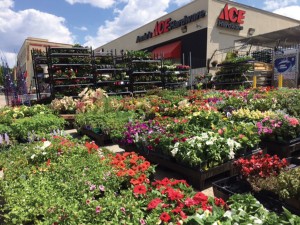 Annie’s Hardware
Annie’s Hardware
Experts:
Annie Stom, Owner and Jerry Van Dyke, Garden Department Manager
Location:
Washington, DC
Website:
annieshardware.com
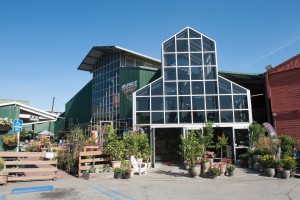 Anawalt Lumber
Anawalt Lumber
Expert:
Rolando Robles, President and CEO
Location:
Los Angeles, California
Website:
anawaltlumber.com
Growing Interest
Food gardening has had an evolution. Once a means of sustenance and survival, food gardening became a hobby for many Americans throughout the years. Today, the practice has had a resurgence, as gardening is experiencing a renewed following.
Overall participation and spending in food gardening in the U.S. is at its highest levels in more than a decade, according a 2014 report by the National Gardening Association (NGA).
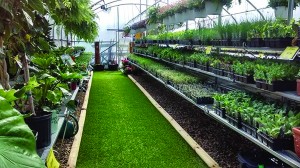
This boost in food gardening is not limited to homeowners with expansive yards. Even those in smaller, urban settings and apartments are getting their hands dirty.
Apartment dwellers are planting fruits, vegetables and herbs, with a 46-percent increase in container gardening, according to the NGA. Younger generations are getting heavily involved as well, making millennials the fastest-growing age group to start a food garden.
The retailers we spoke with supported this data as well, especially Anawalt Lumber, because of its location in Los Angeles.
“Within the past couple of years, we’ve definitely seen an increase in edible plant sales,” says Rolando Robles, president and CEO at Anawalt Lumber.
“Since our area is more eco-friendly and green, customers enjoy using organic products. And due to lot size in our area, customers are growing in planters they can keep on their patio,” he says.
Besides customers wanting to provide organic food for their families, they also see it as a connection to the past.
“In a way, gardening can link generations,” says Stom. “For me, it’s a direct link to my grandma.”
Annie’s Hardware has definitely experienced growth in its fruit and vegetable selection. The store has been in business for four summers and has seen that selection expand each year since it opened.
Ross Seed in El Reno, Oklahoma, is a hardware store that sells bulk seeds and also has a growing customer base that finds gardening nostalgic.
“We’ve had new families and younger customers who planted gardens with their parents or grandparents when they were children and are now beginning a garden of their own,” says Barbara Chadwick, master gardener at Ross Seed.
Knowledge is Power in Produce
As you develop your food gardening selection and customers come seeking seeds and plants, you’ll also need to provide assistance and knowledge to help first-time gardeners develop their green thumbs.
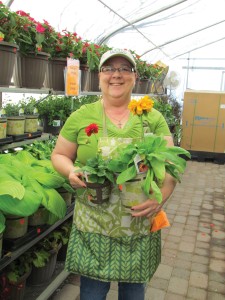
From the events you host to the credentials your sales team has, knowledge is crucial for any home improvement store, especially in the food-gardening category. This area is so important because “the customer experience is always going to be the driving force of fruits and vegetables,” says Laurie Hammersmith, general manager of Farm & Home Hardware in Wellington, Ohio.
The success of the customer lies in your store’s hands.
“It’s absolutely a must to have someone that has knowledge, is friendly and can assist customers on how to grow, what to grow and how to care for plants so they can become a successful gardener,” Chadwick says. “I’ve found in the past that if customers try and fail, they’re not going to do that again, and that’s when you lose business.”
Customers’ success with their gardens translates to success for your fruit and vegetable plant sales.
“When I see new customers, I strive to provide them the best assistance possible, because the more successful I can make them the very first time they visit, the more return we’ll see from them in years to come,” says Chadwick.
Finding Your Ring Leader
Stom from Annie’s Hardware says Jerry Van Dyke, the store’s garden department manager, is the reason their garden center has expanded in size and offerings over the past four summers. Van Dyke leads the store’s lawn and garden team, or “Green Team” as they call it, in assisting customers with their gardening needs.
“Jerry has a very winning way with customers, and people recognize that,” Stom says.
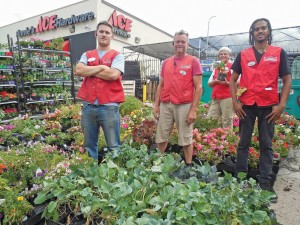
Van Dyke grew up on a farm in Missouri, where his grandfather grew big crops and his grandmother had an acre under cultivation that supplied their food. She also had rooms full of state and county fair ribbons. Van Dyke’s other grandmother was the former president of the Women’s Gardening Club, so that is where he learned about flowering plants. This upbringing instilled a love for plants and produce, leading him to his current position.
“Customers come back to talk with him or the team and get really good information that helps them succeed in the garden,” Stom says of Van Dyke. “It’s critically important to hire someone whose job is to run the lawn and garden department and to lead the team.”
Ross Seed also ensures its lawn and garden team is well-equipped with the knowledge to turn first-time customers into prosperous growers.
Tom Ross, owner of Ross Seed, has two staff members who have become certified master gardeners through Oklahoma State University’s program.
Chadwick is one of the team members who has gone through the program and is a 5-year master gardener.
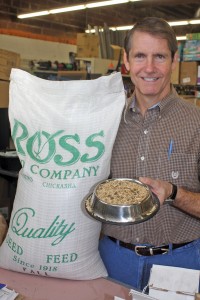
“The staff learns from me and the other master gardener every day,” Chadwick says. “Having the master gardener training is so incredibly important, because if we don’t truly understand a best practice or plant, then we can’t convince someone else.”
When Chadwick first began at Ross Seed, she asked if she could attend the class, and Ross was helpful in scheduling work around her classes. Now she can proudly show customers her accreditation.
“The nametags we wear are very important, because customers can immediately see I am a master gardener,” she says. “That gives them the confidence in knowing that I am trained.”
There is about one state university that offers the master gardener program in each state. To see what university offers the certification in your state, visit the American Horticultural Society’s website at www.ahs.org.
To further assist customers, Chadwick provides visual references.
“I have pictures of everything in my yard so I can show people,” she says. “I can pull the pictures up on my phone or tablet to show them what the plant is supposed to look like in the different phases of growth.”
Chadwick says you can educate people that a pumpkin or watermelon will grow 50 feet from where it’s planted, but until they see it, they might not believe you.
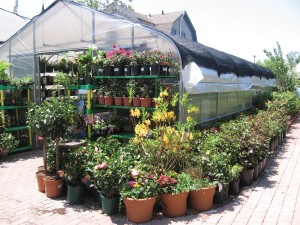
Chadwick also gives customers take-home, how-to instructions with every seed or plant she sells. She believes these hard copies are important, because customers may not remember everything she tells them between the time of purchase and when they begin planting, so she ensures they are equipped with the information to be successful. To add to Ross Seed’s recognition as a garden resource, the store hosts a local farmers market twice a week on the side of the store. They’ve been hosting the farmers market for about 10 years on Wednesdays and Saturdays, and it is the only one in town. The market starts in June and goes until harvest is finished, with about four to six vendors each time.
Develop Events, Devour Success
Besides the advice given to customers on a daily basis, Anawalt Lumber decided to provide customers with seminars through its annual Garden Festival. Held the first weekend in May, the festival provides four seminars a day on topics such as organic gardening, composting and tomatoes. Attendees of the seminars are also entered into raffles.
The tomato seminar became extremely successful thanks to Steve Goto, a tomato guru who does tastings and seminars in northern California, Oregon and Washington.
“He has a following, which he likes to call his groupies,” says Robles. “We’d get 50 to 60 people to listen to his seminar, and we’d always have to go longer, because an hour wasn’t enough.”
This popularity led Anawalt Lumber to begin tomato tastings in 2005, which was the genesis of its annual Tomato Festival, usually held in September. At the festival, there are between 30 and 50 different types of tomatoes attendees can taste and then rate using a grading sheet. Salsa and peppers are also available. This time is when attendees can also ask Goto questions.
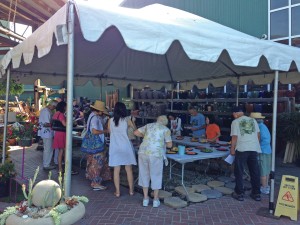
Robles attributes the event’s success to Goto’s following and expertise.
“You need to have an expert,” Robles says. “We’re lucky to have Steve, as he guides us and helps us along, which is key. If it was just me and our team, I think it would be hard for us to make it work.”
Farm & Home Hardware also relies on an expert for their monthly events and seminars.
The store has educational seminars on topics such as fruit pruning, canning and jams and jellies. Fran Blank, previous team member and current local TV personality, leads the seminars.
“Fran has quite a following of people who trust her for best practices and recipes,” says Scott Jerousek, owner of Farm & Home Hardware. “She’s really taken the classes to the next level.”
Jerousek has worked with Blank for the past seven years, and they’ve developed a lineup of well-attended monthly classes.
“Having the right people in place is important to your success in this industry,” Jerousek says.
Blank, a master gardener, has a degree in home economics and many years in the horticulture industry. She also spent five years with the Oklahoma State University extension as a Horticulatural Assistant and has a blog (www.thekitchencousins.com), which built her fan base and success.
The classes begin at 6:00 p.m. and usually last for two hours. The new Farm & Home Hardware store, which is slated to open in March 2018, will have a kitchen area so customers can see the classes as they walk by and Blank can complete the whole canning process during the seminar.
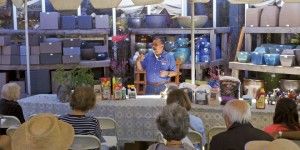
The attendance varies as some classes, such as fruit tree pruning, can have 65 people present, whereas the pickling class has about 25 people.
Hammersmith also uses Blank as a resource for her employees.
“I require team members to go to these classes, so they can better answer customers’ questions,” Hammersmith says.
She says having Blank lead these classes is worth the investment.
“My recommendation to anyone looking to host seminars is to get someone who is well-educated about those topics, because there is so much to stay up-to-date on,” she says.
“It’s all about finding resources,” Jerousek agrees. “If you’re going to start classes, you need a plan in place. You can’t just dip your toe in.”
Fostering Relationships
Another area where knowledge is key is in regards to your stores’ buyers and the local growers they work with.
Annie’s Hardware works with three basic growers, which are smaller shops located in or around Washington, D.C., Van Dyke says.
“People come in and ask us about our growers, and we are pleased and proud to have them,” he says.
Finding quality live-goods suppliers is one thing Stom recommends to retailers who are considering adding fruit, vegetable and herb plants.
“Finding the right growers is key,” Stom says. “I am a big proponent of local businesses and found a local grower from my fellow Ace store.”
While Stom found one grower through another retailer, her second grower was a customer and the third just happened, with little rhyme or reason.
“There’s sort of a serendipity that happens once you start to establish a garden department,” she says.
The staff at Farm & Home Hardware believes growers are the key to success in the food-garden category.
“The best way for your customers to be fruitful gardeners is to have inventory specific to your area,” Hammersmith says, stressing the importance of creating relationships with local growers.
Farm & Home Hardware works with seven different live-goods suppliers for its wide variety of plants.
“Each one of those growers is better at something,” Jerousek says. “All growers have their own niche.”
Hammersmith also emphasizes that the buyer’s ability to purchase the right products and work with the growers is key.
“It’s not always about the quantity; it’s about having the right products at the right price,” Hammersmith says. “If you don’t buy right, you won’t be successful.”
 Hardware Retailing The Industry's Source for Insights and Information
Hardware Retailing The Industry's Source for Insights and Information



